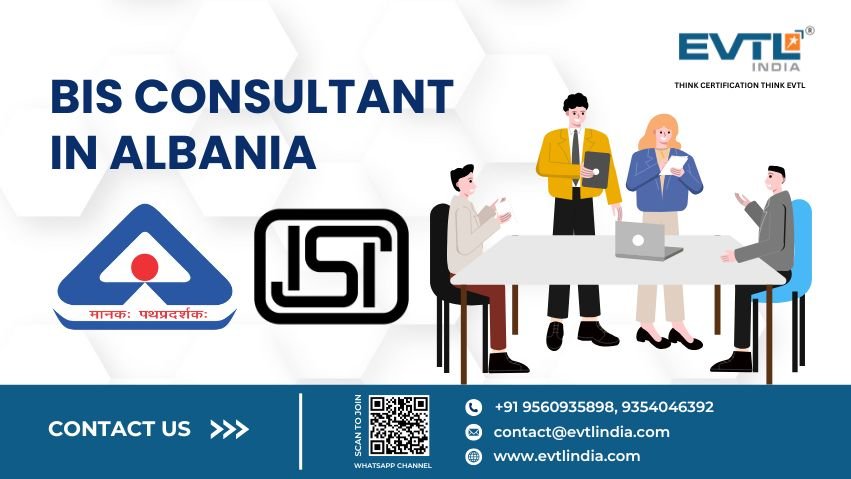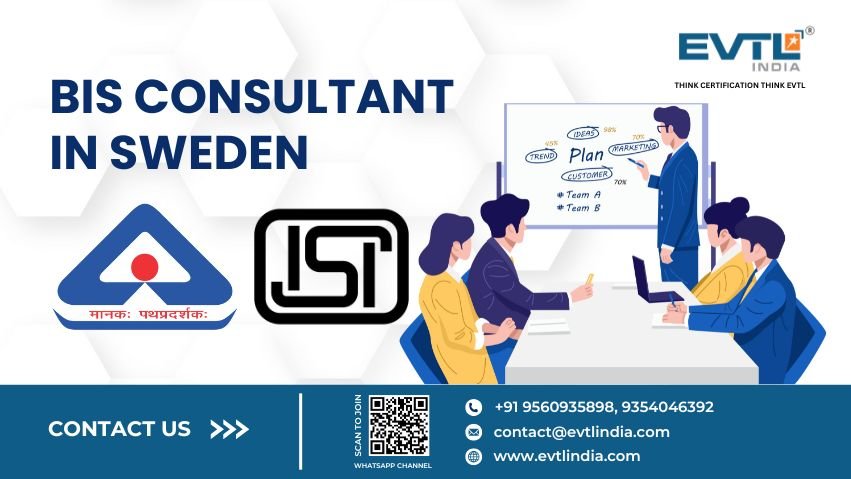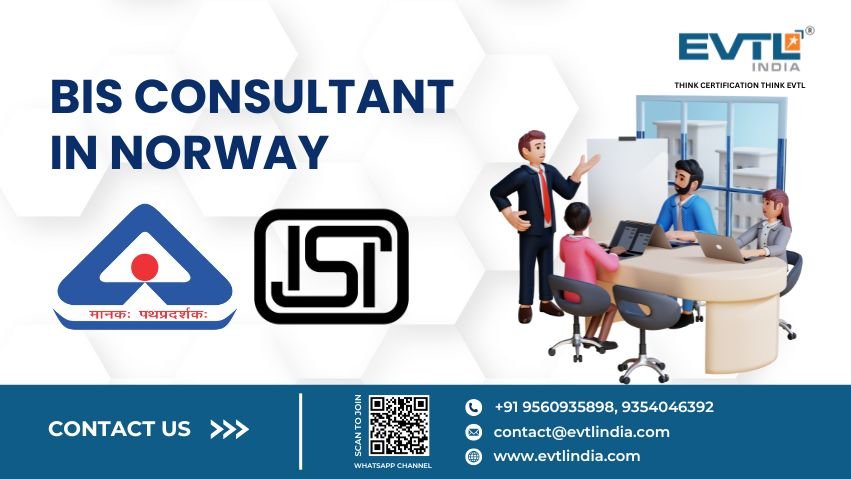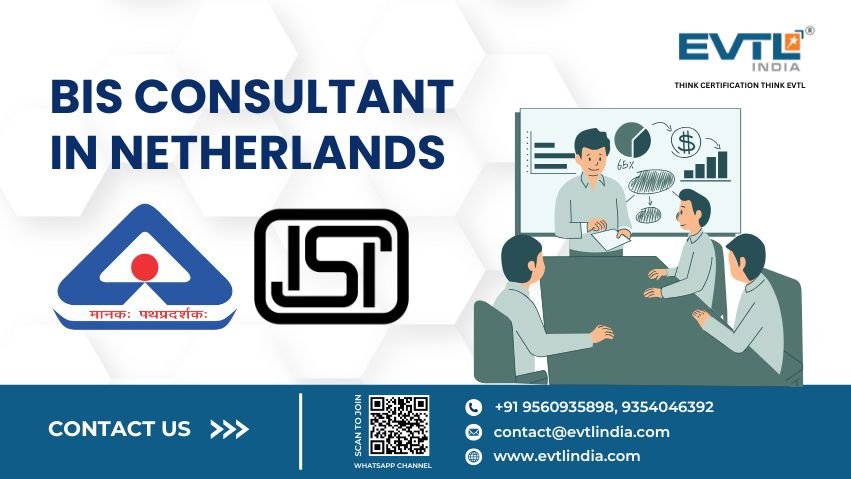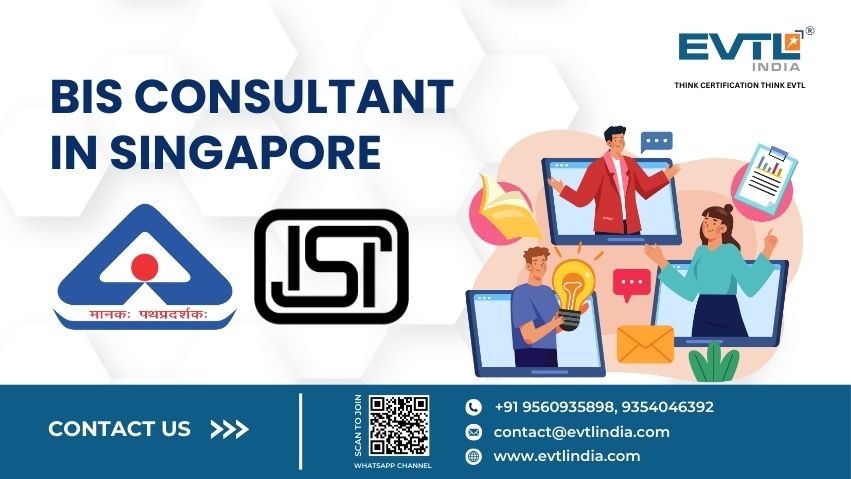BIS Certification for Bearing Components and Accessories
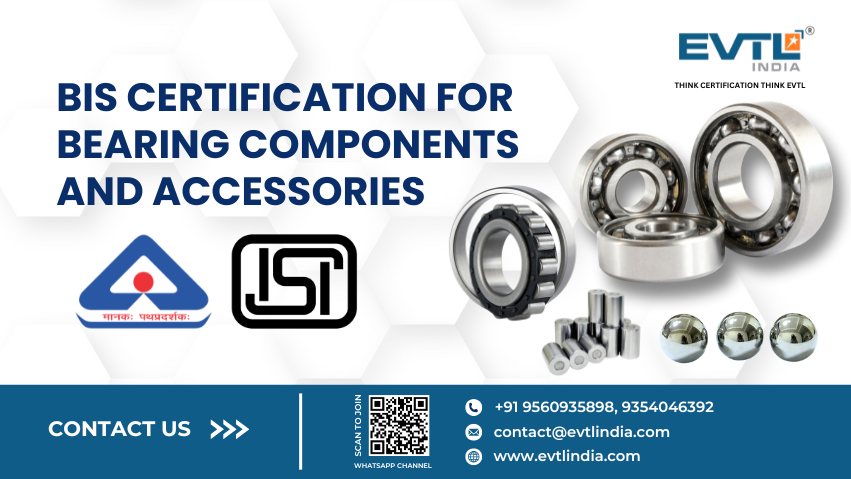
Bearing components and accessories
form the backbone of modern mechanical and industrial systems. They not only
support the smooth rotation of shafts but also ensure long-lasting performance,
precise load distribution, and reduced friction in a wide range of
applications—from automotive and aerospace to heavy industrial machinery and
consumer appliances.
To safeguard the quality and
performance of these critical components, the Bureau of Indian Standards (BIS) has made certification mandatory for various bearing
components and accessories under a Quality
Control Order (QCO) issued by the Department
for Promotion of Industry and Internal Trade (DPIIT), Ministry of Commerce
and Industry.
This regulation, known as the Bearing Components and Accessories (Quality Control) Order, 2025, mandates that all specified products in this category must comply with relevant Indian Standards and carry the ISI Mark, a symbol of quality, safety, and regulatory compliance.
What Are Bearing
Components and Accessories?
Bearing components include core
functional elements such as bearing
rings, steel or ceramic rolling
elements (balls, rollers, needles), and supporting parts like plummer block housings, adapter sleeves, withdrawal sleeves, lock
nuts, and locking devices. These
parts work together to reduce friction, maintain alignment, and support radial
and axial loads in rotating systems.
Accessories such as housings and
sleeves help with installation, alignment, maintenance, and protection of the
bearings, thereby extending equipment life and ensuring reliability in
high-stress environments.
Given their vital role in mechanical operations, the use of high-quality, dimensionally accurate, and durable bearing components is non-negotiable. Even a slight deviation from standard tolerances can lead to system failures, safety hazards, or costly downtime.
The Need for BIS
Certification
The BIS certification for bearing
components and accessories is not merely a formality—it is a legal and
operational necessity designed to:
Under the 2025 QCO, manufacturers, importers, and distributors must obtain a BIS license to produce or sell these components in India. The presence of the ISI mark on certified products confirms that the item meets the applicable Indian Standard in terms of design, dimensions, mechanical properties, and durability.
Mandatory Products under
BIS Scheme-I
The following bearing components and
accessories have been notified for mandatory BIS certification under Scheme-I of Schedule-II of the BIS
(Conformity Assessment) Regulations, 2018:
- IS 2898 (Part 1): 2019 / ISO 3290-1: 2014
- IS 2898 (Part 2): 2019 / ISO 3290-2: 2014
- IS 9202: 2020
- IS 4217: 2020
- IS 15184: 2002
- IS 16605 (Part 1): 2018 / ISO 2982-1: 2013
- IS 16605 (Part 2): 2018 / ISO 2982-2: 2013
- IS 14347: 1996
These products span multiple industries, making the impact of this regulation widespread and vital for compliance.
BIS Certification Process
for Bearing Components
Obtaining a BIS license for bearing
components involves a structured and technically rigorous assessment process.
Here’s how it works:
1. Application Submission: The manufacturer must apply through the BIS online portal,
submitting technical documentation including product drawings, material
specifications, quality control processes, and a declaration of conformity to
the relevant Indian Standard.
2. Factory Inspection: A
BIS assessment team visits the manufacturing site to verify compliance with
quality management systems, test infrastructure, process controls, and material
traceability. This inspection ensures that the product is being manufactured
consistently and to standard.
3. Product Sampling and Testing: Samples of the product are drawn during the factory audit and sent
to BIS-recognized laboratories for testing. Parameters such as dimensional
tolerances, material hardness, surface finish, and other mechanical properties
are verified.
4. Grant of License: If
the product passes the inspection and lab testing, BIS issues a license
allowing the manufacturer to use the Standard
Mark (ISI Mark) on certified items.
5. Ongoing Surveillance and Renewal: Once certified, the manufacturer is subject to regular surveillance audits and periodic sample testing to ensure continued compliance. The license must be renewed periodically, depending on the BIS terms.
Compliance Benefits
Legal Validity: Compliance with the BIS
QCO is legally mandatory. Selling uncertified products can attract penalties,
fines, and bans under the Bureau of Indian Standards Act.
Market Access: Many Indian buyers,
especially government departments and PSUs, insist on BIS-marked products.
Certification opens up both domestic and export opportunities.
Quality Assurance: BIS-certified
components are proven to perform as intended, minimizing the risk of failures
or recalls.
Consumer and Buyer Confidence: The ISI
mark is a visible assurance of quality, building trust with customers,
distributors, and OEM partners.
Competitive Edge: In a market where quality is critical, certification differentiates your product from non-compliant alternatives.
Conclusion
In a sector where precision,
reliability, and safety are paramount, the BIS certification for bearing
components and accessories is not just a compliance measure—it’s a hallmark of
quality and accountability. With the enforcement of the Quality Control Order, 2025, businesses dealing in bearings must
align with national standards to remain legally compliant and commercially
competitive.
Manufacturers, importers, and industry
stakeholders are encouraged to act swiftly to obtain certification, improve
internal quality systems, and work closely with BIS-recognized consultants or
laboratories to navigate the regulatory landscape efficiently.
You can contact us via email at contact@evtlindia.com or by phone at 9560935898. Feel free to get in touch with us anytime for the support you need.
BIS ISI Mark Certification | BIS-CRS Certification | EPR E-WASTE | WMI Registration | BIS Certification For Footwear | TAC & IMEI Registration | BIS FMCS Page | TEC | EPR Registration for Plastic Waste Management | EPR Registration for Battery Waste Management | EPR Registration For Used Oil | EPR Registration for Tyre Waste Management | WPC ETA License | NOC | LMPC | Legal Metrology | Trademark Registration | ISO Certification | EMI-EMC Test | Toys | GEM Registration | EPCG Scheme | LM 79 & LM 80 | ROHS Approval | CDSCO Registration | RF Testing | IP Rating Test | MSME & NSIC Registration | BIS Certificate for Conformity | BIS Scheme-X Certification | Hallmark Registration | Laboratory Recognition Scheme | ECO-MARK Certification | RDSO | CE Certification | List Of Equipments | US FDA Registration | Lab Setup & Lab Equipment |
Free Call Back
Why Choose EVTL INDIA
Expertise in Indian Regulatory Standards
End-to-End Support
Trusted by Top Indian & Global Brands
Fast Processing & Transparent Pricing
Strong Liaison with Indian Authorities
Company Profile



